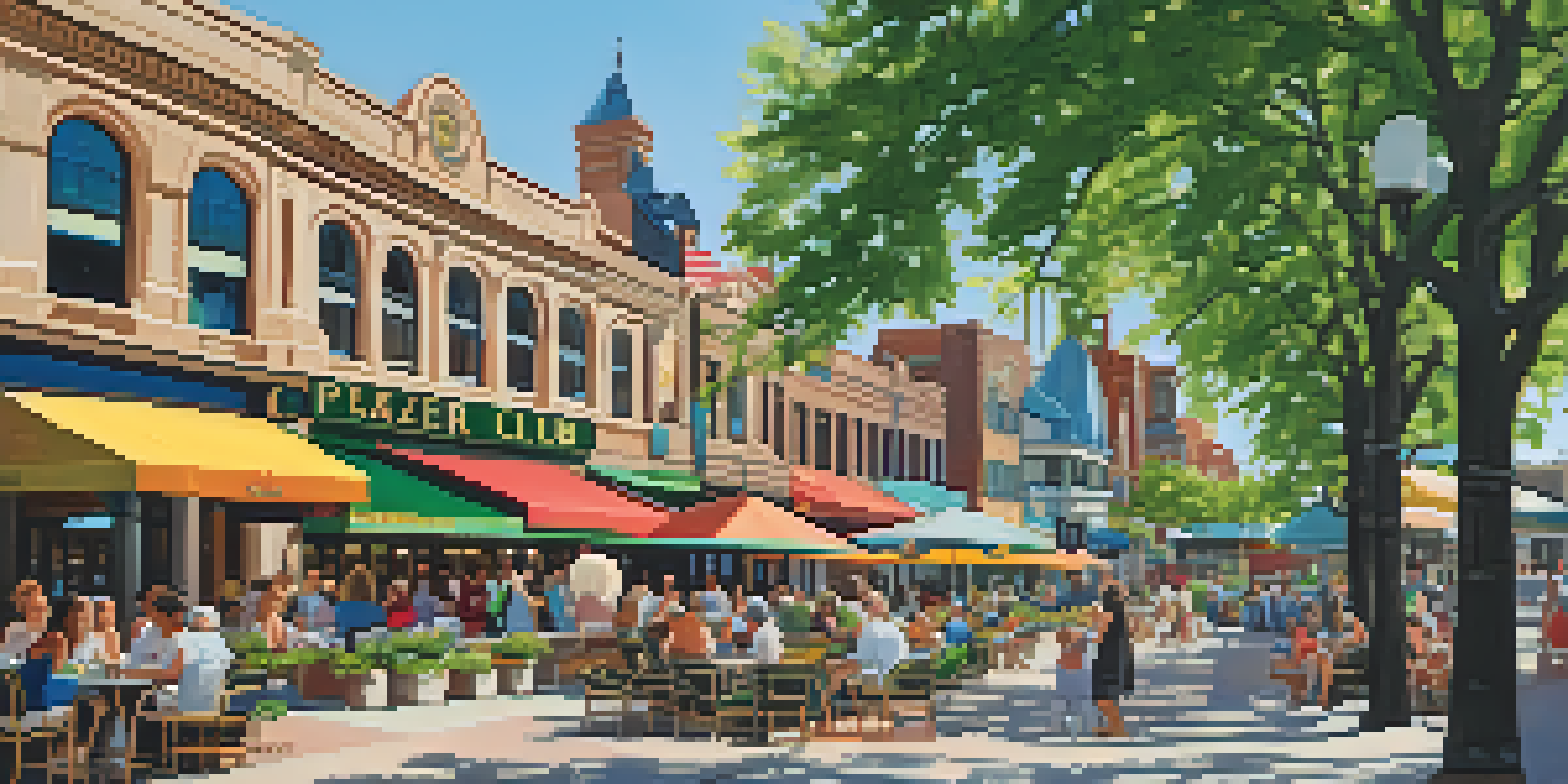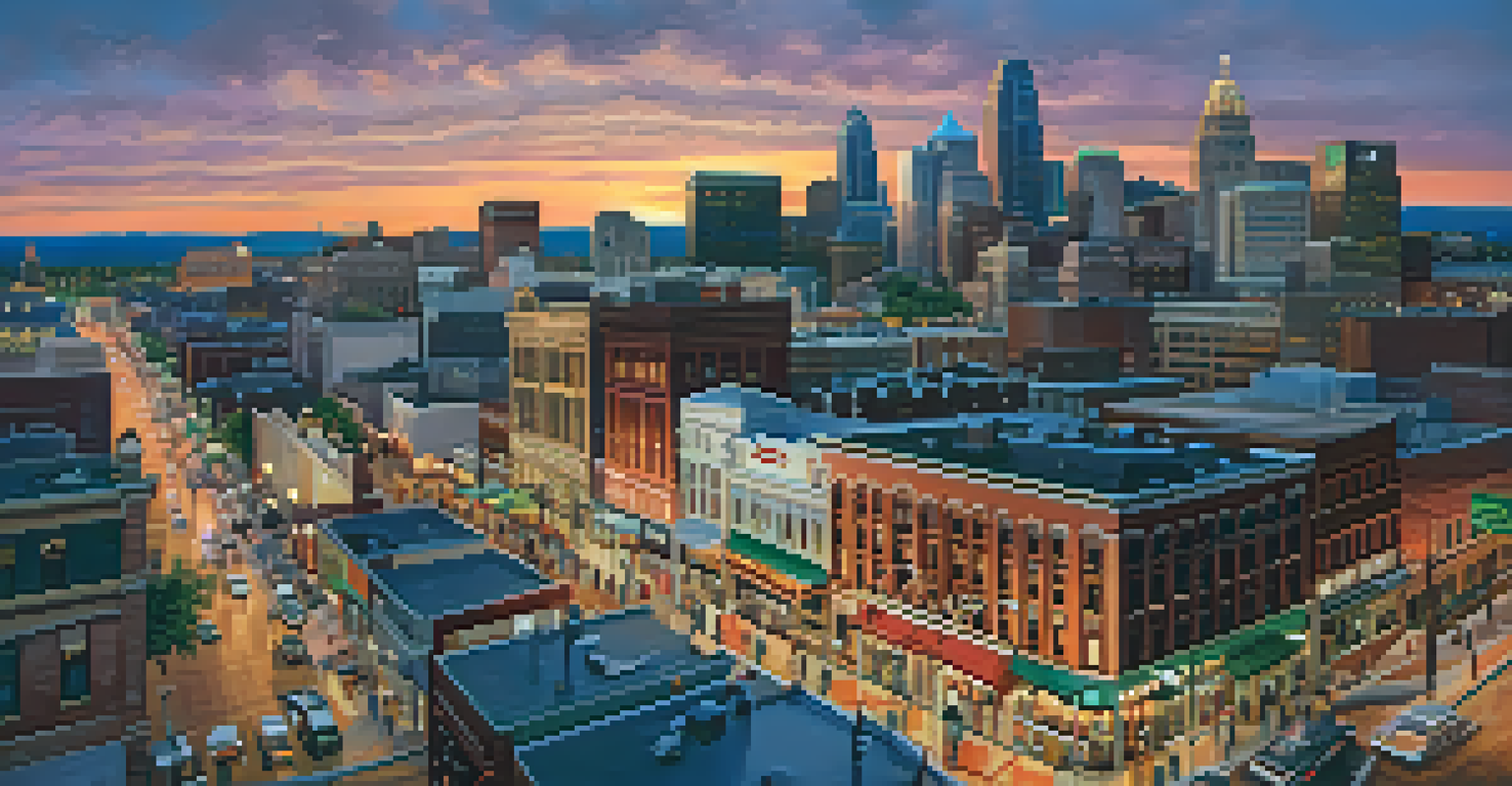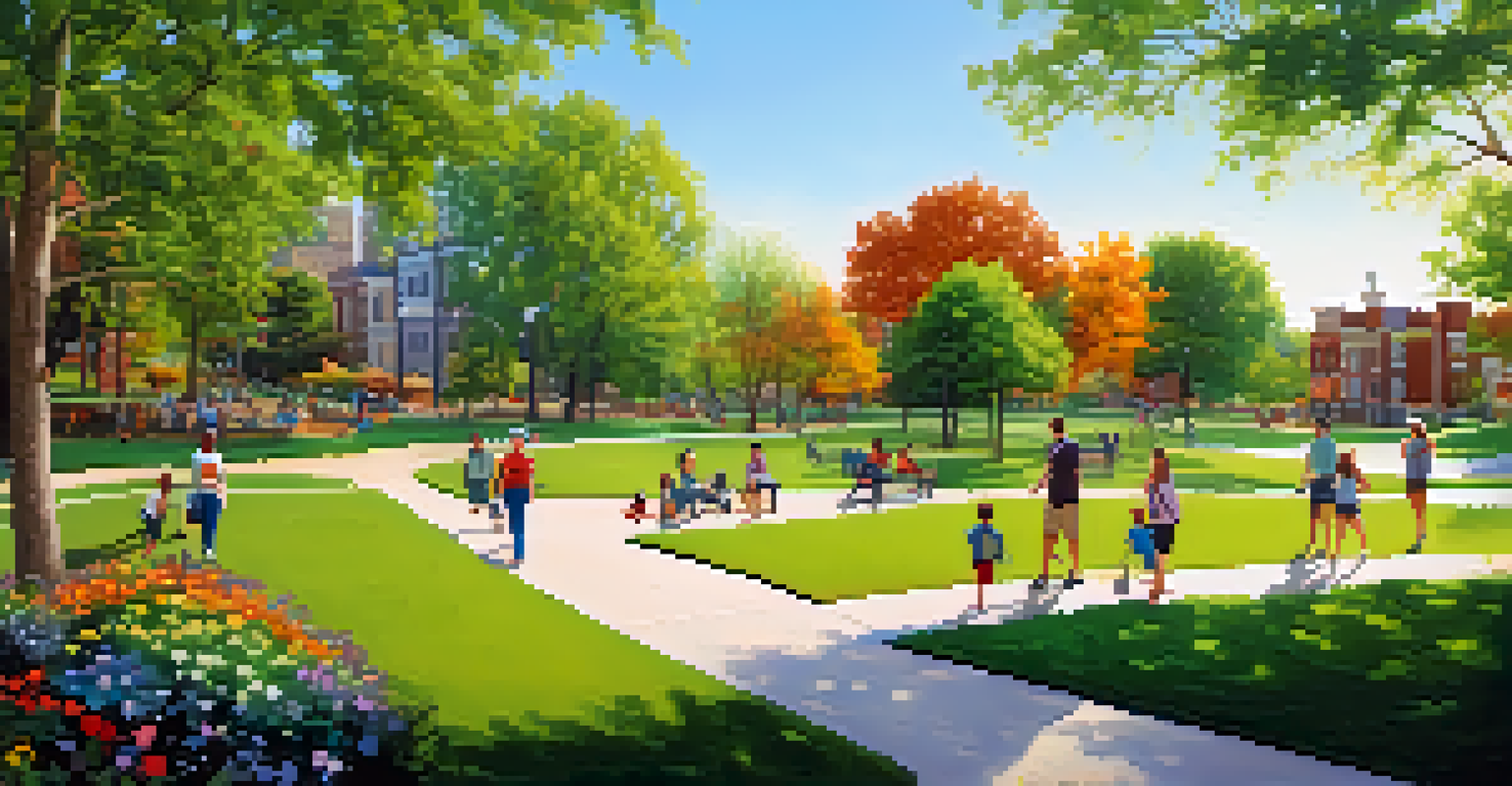Impact of Urban Development on Kansas City’s Local Economy

Understanding Urban Development in Kansas City
Urban development refers to the process of improving and expanding city infrastructure, housing, and public spaces. In Kansas City, this includes revitalizing neighborhoods and creating new commercial hubs. These initiatives aim to enhance the quality of life for residents while attracting new businesses and investment.
Urban development is not just about buildings; it’s about creating a community where people can thrive.
For instance, projects like the redevelopment of the Country Club Plaza showcase how thoughtful urban planning can transform an area into a vibrant destination. This not only boosts local tourism but also increases foot traffic for surrounding businesses. As Kansas City continues to evolve, understanding these developments is crucial for grasping their economic impact.
Moreover, urban development often focuses on sustainability, ensuring that growth is balanced with environmental considerations. This approach not only appeals to eco-conscious residents but also attracts companies looking to invest in green initiatives, further stimulating the local economy.
Job Creation and Economic Growth
One of the most significant impacts of urban development is the creation of jobs. As new businesses open and existing ones expand, they require a workforce, which leads to increased employment opportunities. In Kansas City, various development projects have generated thousands of jobs across multiple sectors, from construction to retail.

For example, the construction of the new streetcar line has not only improved transit options but has also stimulated job growth in the areas it serves. Local businesses have reported increased sales, leading to further hiring and investment. This cycle of job creation is vital for sustaining the local economy.
Urban Development Boosts Economy
Kansas City's urban development initiatives create jobs, attract investment, and enhance the local economy.
Additionally, as more people move to urban areas for work, the demand for housing and services grows. This influx can lead to a thriving real estate market, further enhancing economic stability. It's a win-win situation that benefits both residents and business owners alike.
Attracting Investment and Business Development
Urban development projects often attract investment, both from local entrepreneurs and larger corporations. In Kansas City, the revitalization of downtown has drawn significant attention from investors looking to capitalize on the city's growth. These investments not only lead to new businesses but also enhance the overall economic landscape.
The best way to predict the future is to create it.
Take the Power & Light District, for instance. This vibrant area has attracted numerous restaurants, shops, and entertainment venues, creating a hub for activity. The result is a more dynamic local economy where businesses thrive and residents enjoy a variety of options for dining and entertainment.
Moreover, as Kansas City positions itself as a desirable location for businesses, it becomes competitive with other cities. This competition can lead to further improvements in infrastructure and services, creating a positive feedback loop that benefits everyone involved.
Enhancing Community and Quality of Life
Urban development goes beyond economic metrics; it also significantly impacts community well-being. Projects aimed at improving public spaces, parks, and recreational facilities contribute to a higher quality of life for residents. In Kansas City, these enhancements foster a sense of community and belonging, which is essential for a thriving urban environment.
For example, the addition of green spaces not only beautifies neighborhoods but also offers residents areas for leisure and recreation. These spaces can serve as gathering spots for community events, strengthening social ties among residents. The more connected a community feels, the more likely it is to support local businesses and initiatives.
Community Well-Being is Key
Projects that improve public spaces and promote inclusivity foster a stronger sense of community among residents.
Additionally, urban development can address social issues, such as access to affordable housing and public services. By prioritizing inclusivity in development plans, Kansas City can ensure that all residents benefit from economic growth, leading to a more equitable and vibrant community.
Challenges Faced in Urban Development
While urban development has numerous benefits, it also comes with challenges. One common issue is displacement, where long-time residents may be forced to move due to rising property values and rents. In Kansas City, this has raised concerns about gentrification and its impact on established communities.
Balancing development with the needs of existing residents is crucial. City planners must engage with community members to ensure that new projects serve everyone. This engagement helps to create solutions that minimize displacement and preserve the unique character of neighborhoods.
Furthermore, funding for urban development can be a significant hurdle. Securing investment and managing budgets for large-scale projects requires careful planning and collaboration among stakeholders. Addressing these challenges is essential to ensuring that urban development benefits all aspects of the Kansas City economy.
The Role of Technology in Urban Development
Technology plays an increasingly vital role in urban development, shaping how cities grow and function. In Kansas City, advancements in technology are being integrated into infrastructure projects to enhance efficiency and sustainability. Smart technologies can help manage resources better and improve the overall quality of urban life.
For instance, the use of smart traffic management systems can reduce congestion and improve public transit efficiency. This not only helps commuters but also attracts businesses looking for accessible locations. As technology continues to evolve, its application in urban development will be crucial for future growth.
Technology Shapes Future Growth
The integration of smart technologies in urban development enhances efficiency and improves the quality of life in Kansas City.
Moreover, technology facilitates better communication between city officials and residents. Platforms that allow for public feedback on development projects can foster greater community involvement, ensuring that urban development aligns with the needs of the populace. This collaboration strengthens the relationship between residents and their city.
Looking Ahead: The Future of Urban Development in Kansas City
As Kansas City continues to grow, the future of urban development will play a critical role in shaping its economy. Ongoing projects and new initiatives will likely focus on sustainability, inclusivity, and technological integration. This forward-thinking approach can ensure that the city remains competitive and a desirable place to live and work.
City planners and developers will need to prioritize community input, adapting to the evolving needs of residents. By fostering a collaborative environment, Kansas City can create development strategies that benefit everyone while addressing challenges like affordability and sustainability.

In conclusion, the impact of urban development on Kansas City's local economy is profound and multifaceted. By embracing innovative approaches and prioritizing community well-being, the city can pave the way for a prosperous future.